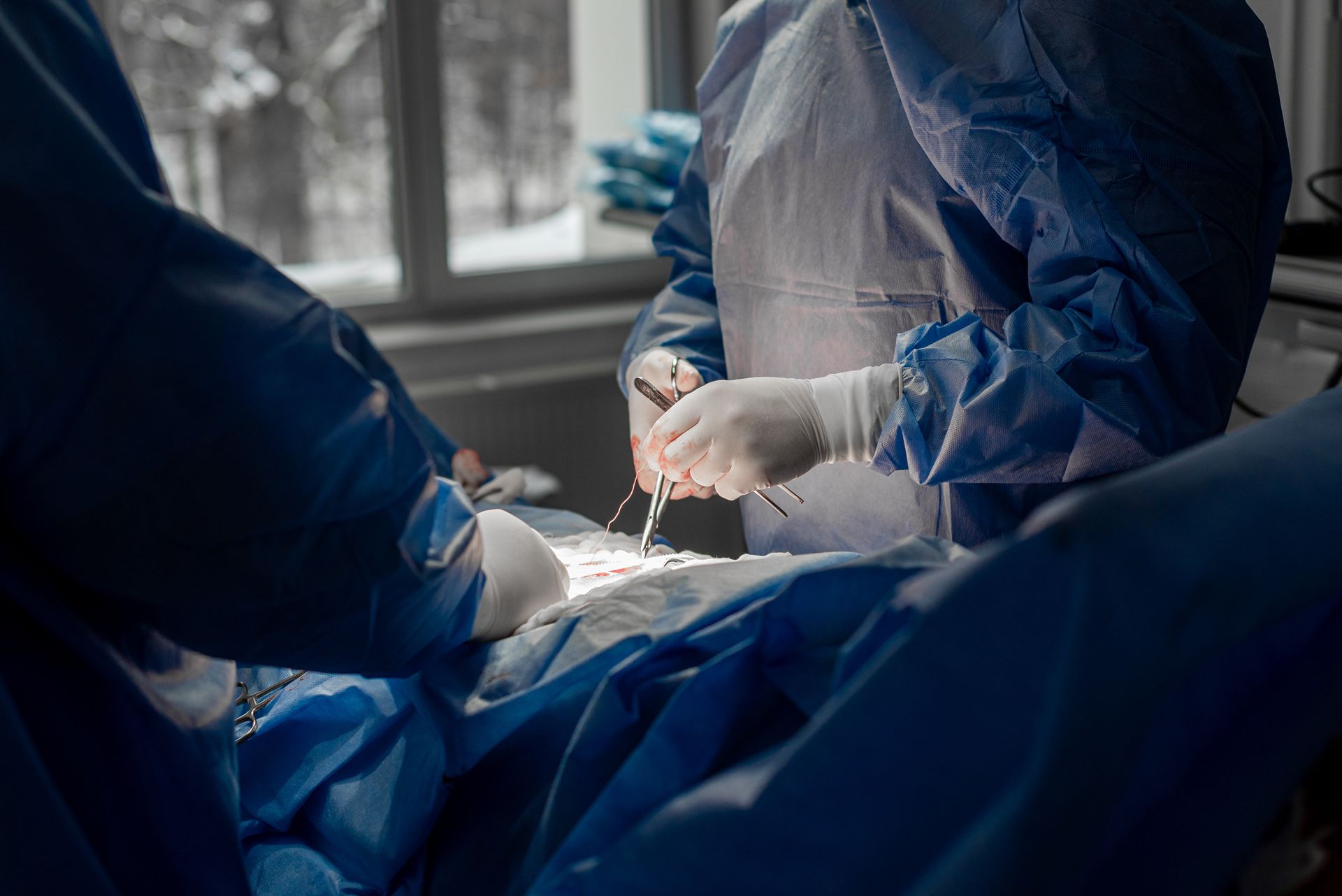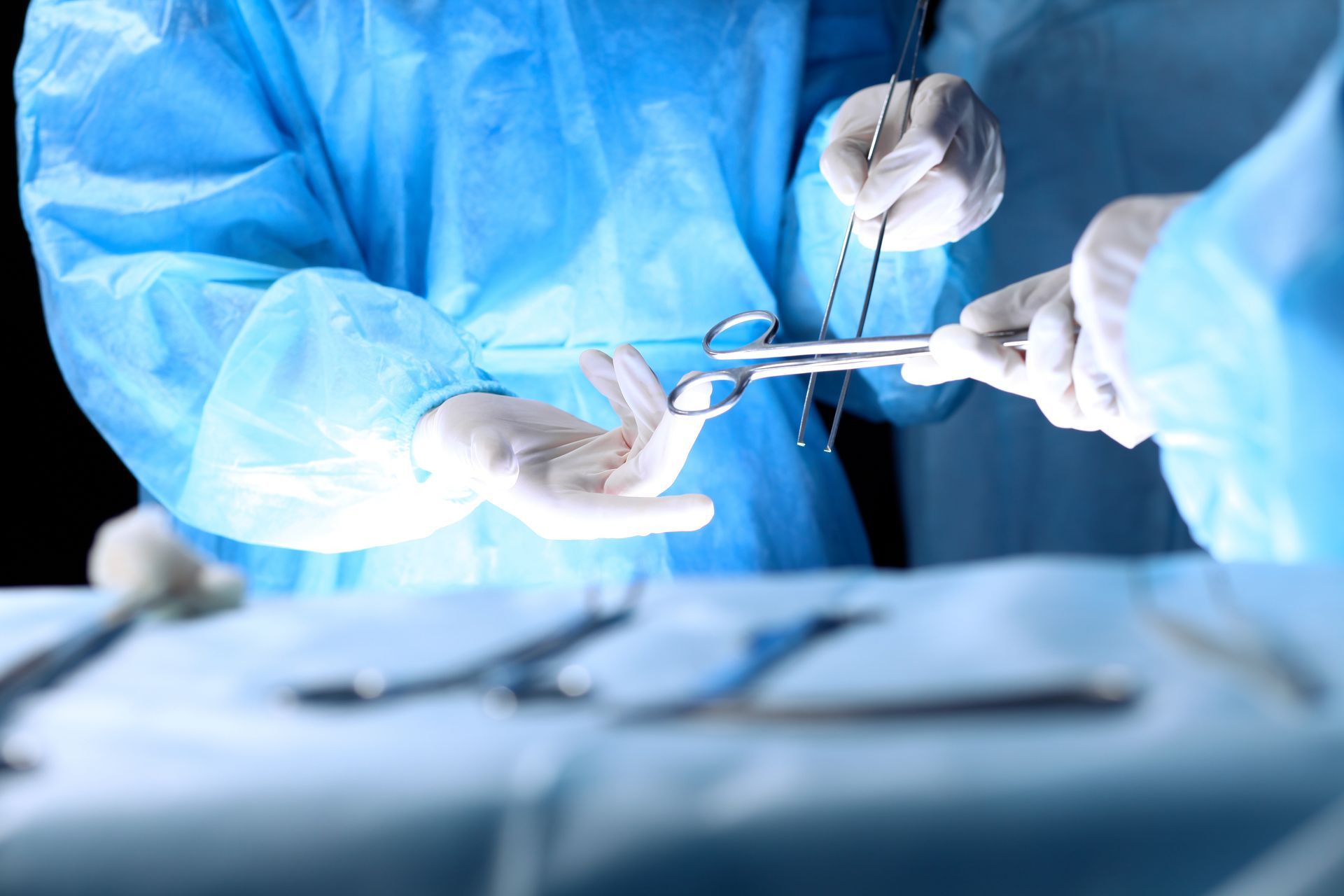Post-Operative Care: Your Comprehensive Guide

Recovering from colorectal surgery can be a challenging process, but with the right guidance, it can also be smooth and manageable. Copper Mountain Surgical, led by expert colorectal surgeons, is committed to ensuring patients are fully prepared for recovery. This comprehensive guide delves into the critical aspects of post-operative care, including wound management, pain relief, dietary recommendations, and tips for handling common side effects.
By following these detailed instructions, patients can promote healing, prevent complications, and regain their quality of life more efficiently.
Wound Care: A Critical Step in Healing
Wound care is a cornerstone of post-operative recovery. Proper wound management minimizes the risk of infection and ensures the surgical site heals as intended.
1. Cleaning the Wound
- Use only the cleaning agents and techniques recommended by your surgeon.
- Avoid scrubbing the wound, as this can damage healing tissue. Instead, gently clean the area with mild antiseptic or as instructed by your doctor.
2. Monitoring for Infection
Be vigilant about recognizing infection signs, such as:
- Redness or swelling that extends beyond the wound area.
- Pus-like discharge or foul odors.
- A sudden increase in pain or discomfort.
- Fever or chills accompanying the wound changes.
If any of these symptoms arise, contact Copper Mountain Surgical immediately. Early intervention can prevent complications.
3. Dressing the Wound
Changing dressings regularly keeps the wound clean and prevents moisture buildup. Always use sterile materials, and avoid reusing gauze or bandages. For added protection, ensure the wound remains dry when bathing by using waterproof coverings.
4. Minimizing Irritation
Avoid tight clothing or any material that might irritate the wound. Keep the area exposed to fresh air when possible, as this can aid healing.
Pain Management: Staying Comfortable While Healing
Pain is a natural part of the recovery process, but managing it effectively can improve comfort and help patients stay focused on recovery.
1. Follow Medication Instructions
Take pain relief medications exactly as prescribed. These may include:
- Non-opioid options, like acetaminophen or ibuprofen, which are often sufficient for mild to moderate pain.
- Stronger medications, such as opioids, for more severe pain. Always use these sparingly and under supervision to avoid dependency.
2. Explore Non-Medication Techniques
Consider complementary approaches to pain relief:
- Cold packs: These can reduce swelling and numb localized pain.
- Relaxation exercises: Practices like deep breathing, meditation, or gentle stretching may ease discomfort.
- Positioning: Adjust your sitting or sleeping positions to avoid pressure on the surgical site.
3. Communicate With Your Surgeon
Pain that worsens or doesn’t respond to prescribed medications may signal an issue. Stay in touch with your colorectal surgeon Phoenix for guidance.
Dietary Guidelines: Fueling Your Recovery
After colorectal surgery, diet plays a crucial role in recovery. Proper nutrition supports tissue repair, restores energy, and helps prevent digestive complications.
1. Start With a Gradual Approach
Post-surgery, your digestive system needs time to adjust. Begin with:
- Clear liquids, such as broth or herbal teas, during the initial days.
- Transition to soft, easy-to-digest foods, like mashed potatoes, applesauce, or oatmeal, before reintroducing solids.
2. Incorporate Fiber Gradually
Fiber is essential for preventing constipation, but it’s best to introduce it slowly to avoid gas or bloating.
- Add fiber-rich foods like cooked vegetables, ripe fruits, and whole grains gradually over a week or two.
3. Stay Hydrated
Hydration is equally important, particularly if you’re taking medications that can dry out the digestive system. Aim to drink at least 8-10 glasses of water daily, but consult your surgeon for specific recommendations.
4. Avoid Trigger Foods
Limit or avoid foods that may irritate the digestive system, such as:
- Spicy or greasy foods.
- Alcohol or caffeine.
- Highly processed snacks.
Managing Common Postoperative Side Effects
Post-operative recovery often comes with side effects that can be managed effectively with the right approach.
1. Fatigue
- Rest is essential: Your body needs energy to heal, so don’t hesitate to take naps or extend your sleep duration.
- Light activity helps: Gentle walks around the house can improve circulation and prevent stiffness without overexerting yourself.
2. Bloating or Gas
- Eat smaller meals throughout the day instead of three large ones.
- Avoid carbonated drinks and foods known to produce gas, such as beans, broccoli, or dairy, if you’re lactose intolerant.
3. Constipation
- This common issue is often caused by pain medications. Counteract it by increasing fiber and water intake.
- Gentle physical activity, such as walking, can also help stimulate bowel movements. If the problem persists, consult Copper Mountain Surgical for safe laxative options.
4. Emotional Changes
Surgery can be emotionally taxing. It’s normal to feel a mix of relief, anxiety, or frustration.
- Connect with supportive friends or family members.
- Consider seeking counseling or joining a support group for patients recovering from similar procedures.
The Importance of Follow-Up Appointments
Scheduled follow-ups with your colorectal surgeon Phoenix are a vital part of recovery. These visits allow your surgeon to:
- Assess the progress of wound healing.
- Address any ongoing symptoms or complications.
- Adjust medications or dietary recommendations based on your condition.
Skipping follow-ups can result in undetected issues that could hinder your recovery. Copper Mountain Surgical prioritizes these appointments to ensure every patient receives the best care.
Additional Tips for a Smooth Recovery
- Prepare Your Home in Advance: Before surgery, arrange a recovery space with easy access to necessities. Keep items like water bottles, medications, and snacks within arm’s reach.
- Stay Organized: Keep a journal to track your medication schedule, dietary intake, and any symptoms. Sharing this information with your surgeon can lead to better outcomes.
- Follow Instructions Closely: Every patient’s recovery is unique. Adhering to the specific instructions provided by Copper Mountain Surgical is key to optimizing your healing process.
- Maintain Open Communication: Don’t hesitate to ask questions or voice concerns. A proactive approach can make all the difference in your recovery journey.
If you still have questions, these Questions About Colorectal Surgery: Answered By Expert is your best friend.
Conclusion: Start Your Recovery With Confidence
Recovering from colorectal surgery is a step-by-step process that requires patience, diligence, and expert care. By focusing on wound care, pain management, dietary guidelines, and addressing common side effects, patients can set themselves up for a smooth and comfortable recovery.
With the support of Copper Mountain Surgical and their experienced colorectal surgeon Phoenix, you can rest assured that you’re on the path to optimal health.
Ready to take the next step in your recovery journey? Contact Copper Mountain Surgical today to schedule your follow-up appointment or learn more about post-operative care. Your health and comfort are our top priorities!




